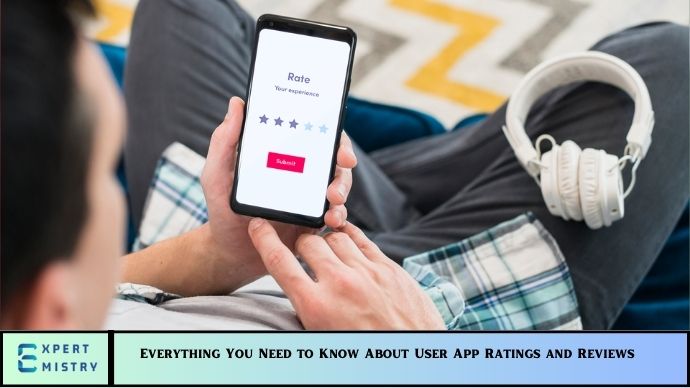In the modern app ecosystem, user app ratings and reviews are pivotal in determining an app’s success. Whether you’re developing a new mobile game, productivity tool, or social media app, the feedback you receive from your users can make or break your app’s reputation and visibility. If you’re an app developer or marketer, understanding the importance of ratings and reviews — and how to leverage them effectively — is essential for your app’s growth.
In this comprehensive guide, we will cover everything you need to know about user app ratings and reviews. From their influence on your app’s performance to strategies for boosting your ratings, this post will give you the insights needed to maximize your app’s potential.
Why Are App Ratings and Reviews So Important?
App ratings and reviews have become a central part of how users evaluate and choose apps. They act as a form of social proof, allowing potential users to make informed decisions based on the experiences of others. Here’s why ratings and reviews matter:
- Influence on Download Decisions
For many users, app reviews are a major deciding factor when choosing to download an app. According to studies, nearly 80% of users read app reviews before making a decision. When an app has good reviews and ratings, it establishes credibility and increases the likelihood that users will trust it and download it. On the other hand, an app with poor reviews or low ratings is likely to be overlooked in favor of higher-rated alternatives. - Impact on App Store Visibility
Both the Google Play Store and Apple App Store factor ratings and reviews into their ranking algorithms. Apps with higher ratings tend to rank better in search results, recommended lists, and featured sections. More visibility means more downloads, which creates a cycle of success that feeds on itself. Poor reviews or a low average rating can prevent your app from reaching its full audience potential. - Building Trust and Credibility
Reviews act as testimonials from real users. A high rating, combined with positive reviews, tells potential users that your app is worth their time. Reviews also add an element of transparency; if your app has a lot of positive feedback, users are more likely to trust it. Conversely, if an app lacks reviews or has overwhelmingly negative ones, it can appear unreliable or subpar, driving users away. - Valuable Feedback for Improvement
Reviews aren’t just important for users—they also provide developers with crucial insights. User feedback can highlight common issues, usability problems, or features that are missing. Negative reviews, while tough to read, offer a roadmap for improving your app. By addressing users’ concerns and acting on their feedback, developers can build better, more user-friendly apps, which increases retention and loyalty.
How Ratings and Reviews Affect Your App’s Success
Here’s a closer look at how ratings and reviews impact your app’s performance:
1. Higher Ratings = Better Rankings
App stores, especially the Apple App Store and Google Play Store, prioritize highly rated apps in their search algorithms. Apps with better ratings often appear in search results, recommendations, and even editorial picks. This increased visibility can drive traffic to your app and ultimately boost downloads.
2. Reviews Influence App Store Algorithms
While ratings are a critical factor in search rankings, reviews also matter. Recent reviews can signal to app stores that your app is still relevant and actively used. The frequency of new reviews helps improve your app’s position, making it more likely to be recommended to other users. Essentially, fresh feedback boosts your app’s discoverability.
3. Social Proof = More Downloads
Social proof refers to the concept that people will take action based on the perceived actions of others. Positive reviews act as testimonials, building trust and increasing the likelihood of new users downloading the app. Users want to know that others have had a positive experience before they invest their time and data. High ratings and positive reviews provide that proof.
4. Increased Retention and User Loyalty
Users who engage with your app through reviews are more likely to stay loyal to your app. Responding to feedback, especially negative reviews, shows that you care about your users’ opinions and are committed to improving the app. This engagement can increase retention rates, as users appreciate hearing that their feedback matters.
The Role of Negative Reviews
While positive reviews are vital for success, negative reviews also play a significant role in the development of your app. Here’s why you should pay attention to criticism:
1. Valuable Feedback for Improvement
Negative reviews provide direct insights into your app’s flaws. Perhaps users find the design clunky, or they experience frequent crashes. By addressing these issues, you can optimize your app to meet user expectations, resulting in better reviews down the line.
2. Transparency and Trust
Responding to negative reviews in a transparent and constructive manner shows potential users that you take user feedback seriously. A polite, well-thought-out response to a negative review demonstrates that you are invested in providing a high-quality app and are willing to make changes based on user concerns.
3. Reputation Management
One bad review can sometimes snowball if left unchecked. If your app has recurring issues that aren’t being addressed, users may feel frustrated and abandon the app, leaving bad reviews in their wake. Promptly responding to and resolving issues reflected in negative reviews helps protect your reputation.
Strategies to Improve Your App’s Reviews and Ratings
Now that we’ve covered the importance of app ratings and reviews, let’s explore some strategies to help improve your app’s reviews and ratings.
1. Ask for Reviews
It’s important to encourage users to leave reviews. While you can’t force them to do so, a well-timed prompt can encourage users to share their feedback. Timing is key—ask for reviews after users have had a positive experience, such as completing a task or using a key feature.
2. Incentivize User Reviews (Cautiously)
Offering small incentives can encourage users to leave positive reviews. However, it’s important to avoid violating platform guidelines (such as offering rewards only for 5-star reviews). Incentives should be given regardless of the rating to ensure fairness and compliance.
3. Respond to Reviews Promptly
Respond to both positive and negative reviews. Thank users for their positive feedback, and address any concerns expressed in negative reviews. Transparency and communication can build trust and enhance user satisfaction.
4. Monitor and Track Feedback
Use analytics tools to monitor and track feedback. Pay attention to patterns in the feedback to identify common issues and fix them proactively. Analytics can help you understand which features users love and which ones need improvement.
5. Regularly Update Your App
Frequent updates demonstrate that you’re committed to improving your app. By addressing bugs, adding features, and enhancing the user experience, you increase the likelihood of positive reviews.
Frequently Asked Questions (FAQs)
1. How do app reviews impact my app’s ranking?
- App reviews directly influence search rankings in both the Apple App Store and Google Play Store. Positive reviews increase visibility and can help your app rank higher in search results, leading to more downloads.
2. Can negative reviews hurt my app’s reputation?
- Negative reviews can impact your app’s reputation, but how you respond matters. By addressing concerns and improving your app based on feedback, you can mitigate the impact and even turn negative reviews into opportunities for improvement.
3. How can I get users to leave reviews for my app?
- To encourage reviews, ask users after they’ve had a positive experience with your app. You can also prompt them in the app itself, but be careful not to interrupt their experience too much.
4. Are reviews from influencers important?
- Yes, influencer reviews can have a major impact, especially in app discovery. Influencers have large followings that trust their opinions, and positive reviews from them can greatly increase visibility.
5. What if my app has no reviews?
- If your app has no reviews, it can appear suspicious or untrustworthy. Try promoting your app through other channels (like social media or email newsletters) to encourage initial downloads and reviews.
Conclusion
User app ratings and reviews are an integral part of any app’s success in today’s competitive digital landscape. They influence download decisions, visibility, and credibility within app stores. Whether you’re dealing with positive or negative reviews, it’s essential to engage with your users and use their feedback to make improvements.
By actively encouraging reviews, responding to feedback, and using user insights to enhance your app, you can build a loyal user base, improve your app’s performance, and drive long-term success.
Understanding the power of ratings and reviews will enable you to leverage them effectively and ensure your app reaches its full potential.

